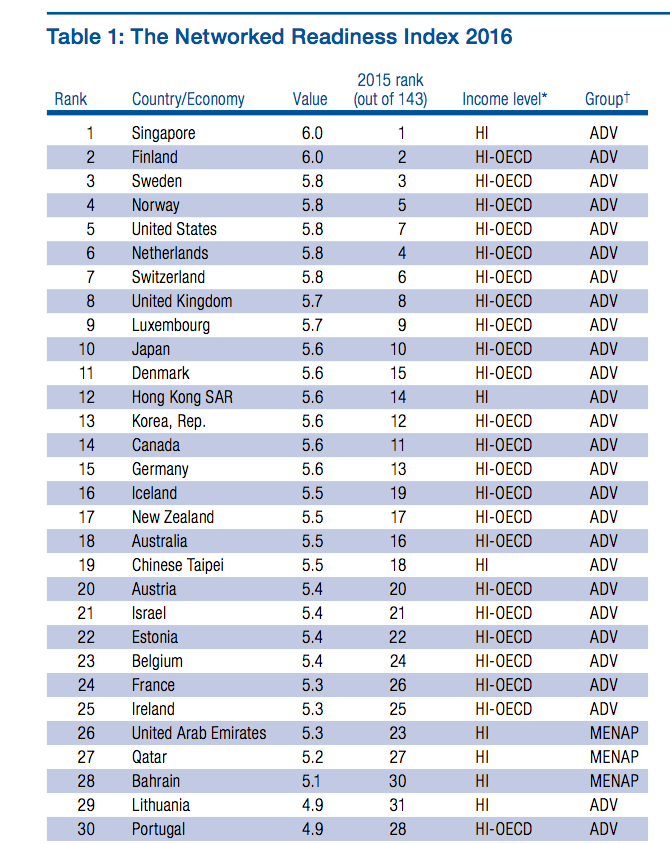Last year at this time, Dispatches executives were scouring Europe for our new headquarters. And of course, everyone told us, “You need to be in Germany.”
We looked at Berlin. We looked at the south around Kaiserslautern near the French border. And we found one big problem: No public Wi-Fi. This is a deal killer if you’re a digital startup, and you’re working out of coffee shops as you try to build a Pan-European expat website.
How sad is Germany’s digital technology? I got another close-up look a few weeks ago when I went to Dusseldorf.
I stayed at the TRYP Dusseldorf Airport Hotel, part of the Parsippany-Troy Hills, NJ-based Wyndam World Wide, a publicly traded global hotel and hospitality chain. The Dusseldorf hotel is just another unremarkable corporate lodging. The room was large and comfortable, with one of the groovy new circular glass showers as the center point. (Though how weird is that if other people are in the room?) The breakfast was the typical German breakfast, which means a giant spread of meats, cereals, cheeses and a dozen different breads.
It was fine.
Except … and this is the most annoying thing in the world: The TRYP Dusseldorf charged me for Wi-Fi, just like hotels do in the U.S.
Seriously? In 2016?
Well, the room was advertised as having “free Wi-Fi.” And it did … the first 50 megabytes of data were free. Since I was posting on Dispatches, I blew through that in about an hour. The next day, I was presented a bill for 20 euros for exceeding my limit, a limit I didn’t know I had.
I don’t care about the 20 euros. I don’t care about the hotel ripping me off.
What I can’t get my head around is that you have to pay for Wi-Fi anywhere in 2016! Or at least anywhere in Europe. I can stand in the middle of almost any small Dutch city and get free Wi-Fi. I can get Wi-Fi on most trains. I can get Wi-Fi on the city bus, for crying out loud. In Sweden, it’s the same deal. Except in Stockholm, public connectivity is typically more stable and far faster than even in the Netherlands.
All this is not my imagination. Germany is – as my IT friends put it – “a hotspot desert.”
Germany may build the greatest cars in the world and have the most sophisticated financial and industrial sectors, as well as Europe’s most exciting startup scene in Berlin. But it is bizarrely one of Europe’s digital laggards.
The World Economic Forum released its 2016 Global Information Technology Report last month, and Germany didn’t even make the Top 10. Germany is ranked on the WEF Index at a middlin’ No 15, one notch above Iceland. Finland is No. 2 on the list behind Singapore, followed by Sweden at No. 3 and Norway at No. 4. The Netherlands, Switzerland, the United Kingdom, Luxembourg and Denmark finish out the Top-10 in that order.
So, why is Germany ranked so low?
One reason is Störerhaftung, (literally, “disturbers liability”), a bizarre German law that makes network providers responsible for any illegal activity (read pirating or stealing credit card data) committed by hackers on their network. So, if I sit in a Starbucks in Duisberg (which I did) and hack into the NSA’s encrypted network (which I most certainly did not), Starbucks executives in Germany and all the baristas at the store have to go to jail with me.
As they say in the army, you can’t make this stuff up.
So, let’s look at Germany’s digital dysfunction.
Gizmodo recently had a post about how protestant churches in the former East Germany are using Wi-Fi to lure people back, counting on the fact that there are few public alternatives.
From that post:
In honor of the 500th anniversary of Martin Luther’s Reformation, all churches in the former East Germany—starting with about 220 in Berlin, and rolling out to over 3,000 in total—will offer free Wi-Fi (“Godspots”) to guests. The hope is that it’ll show that churches aren’t just for sermons and bells, but also “a gathering place for communication,” says spokesperson Christoph Heil. The Reformation itself wouldn’t have happened without the printing press, so why can’t free internet have a similar effect?
Apparently, the same rules that allow churches to give people sanctuary allow them to skirt the Störerhaftung rules. In the United States – which ranks No. 5 on the Global Information Technology Report – the law is heavily on the side of open access even to the point it somewhat aides digital thieves.
The 1998 Digital Millennium Copyright Act protects sites that (unknowingly) host illegal third-party content or activities. Which makes it tough for authorities to, say, take down copyrighted content such as music. But it guarantees people in digital startups they can walk into any coffee shop and go to work, an important entry portal to the U.S. startup scene.
The tech index notes that Germany is one of the highest-scoring countries for business usage (6th), “yet the government is not yet using digital technologies to their full potential (30th).” According to the Global Information Technology Report, broadband prices in Germany are “high and rising.”
That might be about to change as multiple media outlets have reported the German government is set to end the Störerhaftung. At least one American company is confident enough it will happen that they’re planning to offer free Wi-Fi in several German central cities including in Stuttgart, Nuremberg and Frankfurt.
San Jose-based American e-commerce multinational Ebay has announced plans to place hotspots in 22 German cities. Which shows if you want to enable potential consumers to actually have 24-hour access to your services, you have to give their home country a little nudge. Well, if it’s Germany, anyway.
Co-CEO of Dispatches Europe. A former military reporter, I'm a serial expat who has lived in France, Turkey, Germany and the Netherlands.















